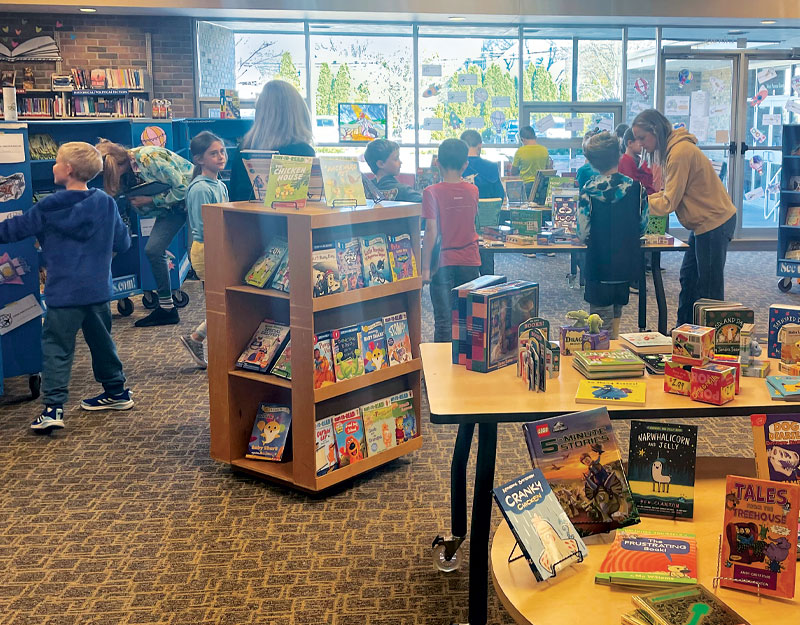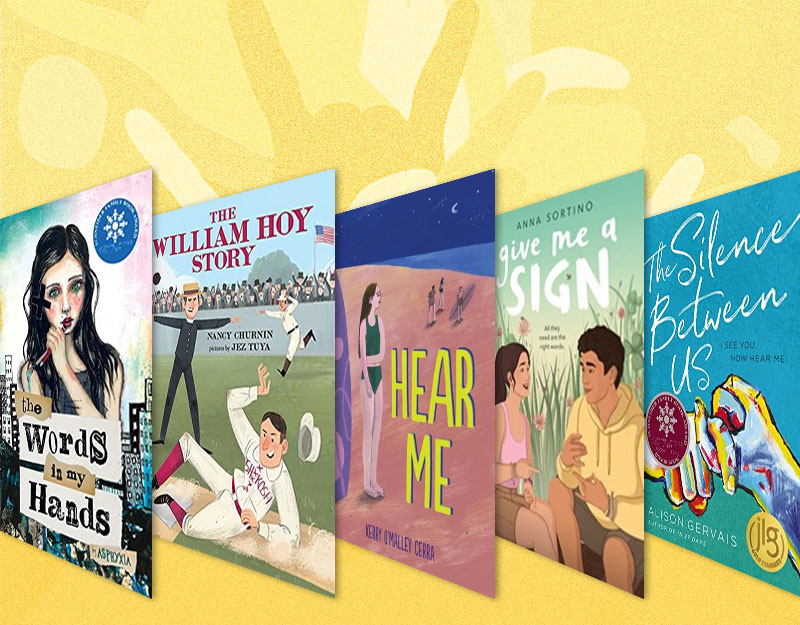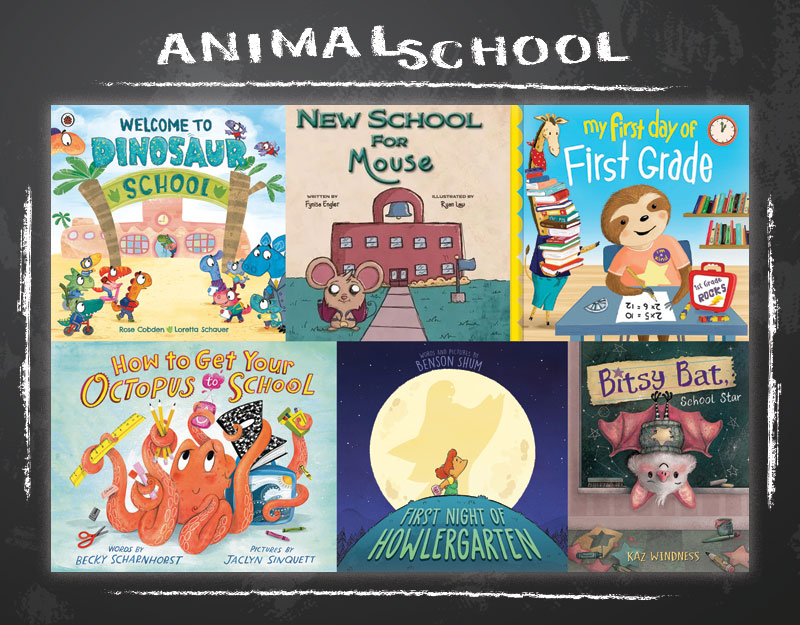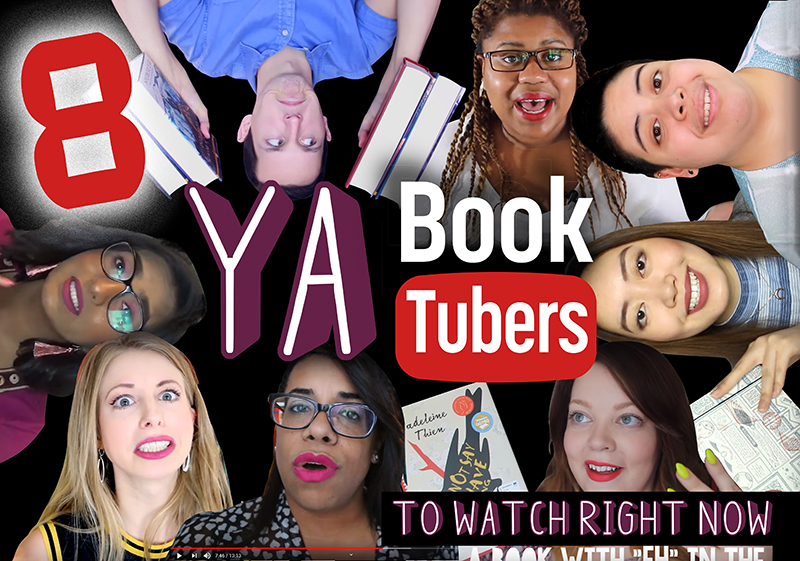#MHYALit: Talking about mental health-related books and issues with teens
 For the past nearly four years, I’ve run a monthly YA book club at the library. My crew has remained fairly strong over the years and is a very diverse mix of teens. Generally, we talk about whatever it is we’ve been reading. It’s very casual and there’s always lively discussion. To see some of our past conversations, check out this post about Marieke Nijkamp’s THIS IS WHERE IT ENDS and our discussion on sexual violence in YA lit (no, really—go check that one out right now). If any of you have used #MHYALit as a jumping off point for your book club, we’d love to hear about it. I’m @CiteSomething on Twitter.
For the past nearly four years, I’ve run a monthly YA book club at the library. My crew has remained fairly strong over the years and is a very diverse mix of teens. Generally, we talk about whatever it is we’ve been reading. It’s very casual and there’s always lively discussion. To see some of our past conversations, check out this post about Marieke Nijkamp’s THIS IS WHERE IT ENDS and our discussion on sexual violence in YA lit (no, really—go check that one out right now). If any of you have used #MHYALit as a jumping off point for your book club, we’d love to hear about it. I’m @CiteSomething on Twitter.
The discussion
Recently, we decided to read books that dealt with mental health issues and discuss not only the books, but the topic in general. I am very open with the teens about my own perpetual struggle with anxiety disorder and my son’s experiences with anxiety, too. Because my crew has stayed very consistent and is fairly close and open, our discussion was very relaxed and honest. Having a similar discussion with a larger group or a less close group may not get the same results as we were able to have. The book club members are all familiar with the #MHYALit project we’re doing here at TLT. Depiction of mental health issues and treatments has been an ongoing discussion for a few years now in our group, so they were well-versed in this subject already. Because of how well we’ve covered this ground, we talked more about larger mental health issues in the lives of teens.
ADVERTISEMENT
ADVERTISEMENT
I asked them what, if anything, is talked about in their schools regarding mental health. One girl said that at her school has a Wellness Center at school that is specifically for mental health help and resources. Because of recent suicides at her school, there is an increased attention to this subject. The school has had speakers in to talk to the student body. The Wellness Center has four doctors who come in to provide therapy. The school works with the students and their families to get them help during school hours at the school. They work with the teachers and rotate appointment times so kids don’t miss too much of any one class. Maybe because of this increased attention to mental health needs, this student felt that many teachers are more aware of mental health issues and seem like someone kids could turn to.
Some of the girls who attend another high school, the one I used to work at, felt that their school does nothing to address the needs of students struggling with mental health issues. They felt comfortable maybe approaching certain teachers about things, but didn’t think there was an overall understanding or desire to help students. One girl relayed a terrible story of going to the school guidance counselor and saying she was suicidal and the counselor flat out told her that’s not what that office was there for. “We don’t deal with that,” she told her. (Yes, I had a minor rage blackout over that story.) These girls said that outside of possibly telling a teacher they felt safe with, they wouldn’t know how to go about getting any help with mental health issues at school. They said that even if they went to a teacher, teachers aren’t trained in how to help them (or that’s their perception).
We discussed how mental health issues are talked about with their peers and their friend groups. They said these issues are slowly losing their stigma and that sometimes when one person shares about a struggle, it opens the doors for others to start sharing what they experience, too. They said they generally feel comfortable turning to their friends for help, knowing those friends will care and help you through something, but ultimately they’re just other kids, not trained professionals. This all led into an interesting talk about how there is no one way for depression or anxiety or OCD (etc) to look like, and that you never know what people have going on.
I asked if having more fictional characters facing mental health struggles helped actual teens. They all agreed that it normalizes these experiences and gives teens a peek at someone they might be able to relate to. They said that by seeing characters struggle in stories, they can see into other experiences, especially if they themselves don’t have this particular issue. They said that it helps them know how people suffer and it shows how they might be able to help or react. They said they often worry they’ll say the wrong thing to someone who is struggling and like to see examples of how to be supportive. “I like it when books teach me how to treat people,” one girl said. (Have I mentioned I heart my teens?)
Finally, I asked what they might like to see more or less of in YA regarding mental health issues. They want to see more experiences of teens in therapy or in treatment facilities. They want to see more teens actually liking their therapists and not being “dragged” to one or hating the experience. They want to see characters who see a therapist that’s not a great fit but then seek out someone who is more helpful. They’d like to see more treatment options in general.
My group had so many smart things to say and were so compassionate and open. We talked about the importance of schools and teachers being aware of mental health issues because in many cases, if teens can’t turn to their parents, school is maybe their best shot for someone noticing them struggling and potentially helping them.
Handout 1: Questions about books
I prepared a handout with the following questions for readers to consider as they read books related to mental health issues. Feel free to use them with your own book club.
Questions to keep in mind as you read
- What is the mental illness/what are the mental illnesses depicted?
- What does their illness look like—symptoms, ways it affects them/others, how it might limit them, etc
- How is the subject of mental illness approached or treated?
- What help or treatment does the character seek? Who, if anyone, do they talk to about what’s going on? Who helps them?
- Is there shame and stigma?
- Is the treatment they receive helpful?
- Is the issue of medication discussed? How is it approached? Do characters feel “drugged” like they can’t be themselves or like they will be numbed to feelings?
- Does the author offer resources or notes at the end on the book on mental illness diagnosis, support, treatment, etc?
Handout 2: Additional discussion starters
- Is mental health ever talked about at school, whether in health class or by counselors or addressed in any way?
- What are your thoughts as teens on how mental health issues are addressed or stigmatized etc?
- Does having more characters facing mental health struggles in YA books do anything to help actual teens?
- What do you wish you’d see more/less of re: mental health in YA books?
Handout 3: Recommended reading
Feel free to use this list in your own library.
The Memory of Light by Francisco X. Stork (Depression, treatment facilities)
Truest by Jackie Lea Sommers (Solipsism syndrome)
We Are the Ants by Shaun David Hutchinson (Depression, grief)
Fig by Sarah Elizabeth Schantz (Schizophrenia)
Challenger Deep by Neal Shusterman (Schizophrenia)
Underwater by Marisa Reichardt (Panic disorders, anxiety, PTSD)
Some of the Parts by Hannah Barnaby (Grief)
The Rest of Us Just Live Here by Patrick Ness (OCD, Anorexia)
More Happy Than Not by Adam Silvera (Depression)
The Impossible Knife of Memory by Laurie Halse Anderson (PTSD)
OCD Love Story by Corey Ann Haydu (OCD)
Every Last Word by Tamara Ireland Stone (OCD)
Delicate Monsters by Stephanie Kuehn (Mental illness, psychopaths)
The Great American Whatever by Tim Federle (Grief, depression)
The Start of Me and You by Emery Lord (Grief)
The Way Back from Broken by Amber J. Keyser (Grief)
Saving Francesca by Melina Marchetta (Depression)
When Reason Breaks by Cindy L. Rodriguez (Mental illness)
The Chance You Won’t Return by Annie Cardi (Mental illness, identity disorders)
Thicker Than Water by Kelly Fiore (Addiction)
Clean by Amy Reed (Addiction)
Scars by Cheryl Rainfield (Self-harm)
Wintergirls by Laurie Halse Anderson (Eating disorders)
Identical by Ellen Hopkins (Multiple personality disorder)
It’s Kind of a Funny Story by Ned Vizzini (Depression, treatment facilities)
Dr. Bird’s Advice for Sad Poets by Evan Roskos (Depression)
The Museum of Intangible Things by Wendy Wunder (Bipolar disorder)
Filed under: #MHYALit
About Amanda MacGregor
Amanda MacGregor works in an elementary library, loves dogs, and can be found on Twitter @CiteSomething.
ADVERTISEMENT
ADVERTISEMENT
SLJ Blog Network
The Moral Dilemma of THE MONSTER AT THE END OF THIS BOOK
Cover Reveal and Q&A: The One and Only Googoosh with Azadeh Westergaard
Winnie-The-Pooh | Review
Parsing Religion in Public Schools
ADVERTISEMENT








Thank you so, so for posting this and other mental health-related articles focusing on teens. Showing the truth, ripping away the stigma, and embracing the need for more help and resources is the key to helping the more than 60% of mental illness sufferers who did not receive care last year. Keep posting the awesomeness!
🙁
Typo already! Thank you so, so much! There 🙂 I got to say it again!
ty